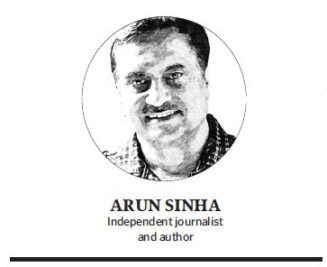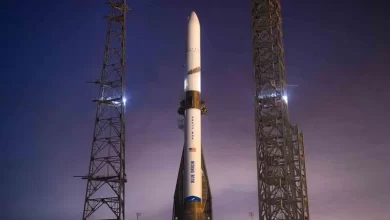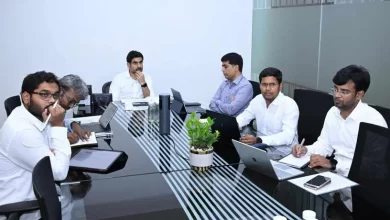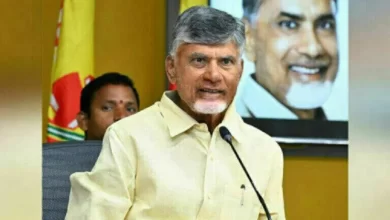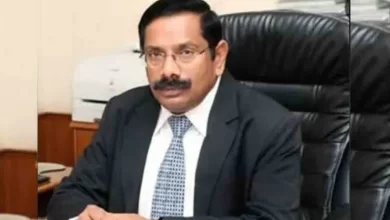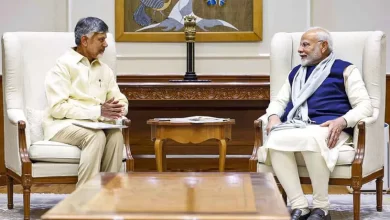Opinion: India needs a million Rahuls
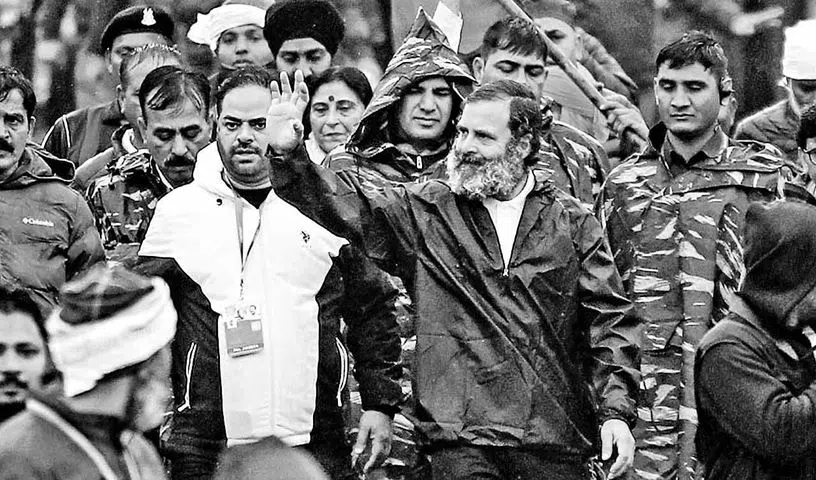
The battle to save democracy and diversity will not end with the elections in 2024.
By Arun Sinha
Hyderabad: As the Bharat Jodo Yatra ends on January 30, five questions beg for answers: One, has it changed the public perception of Rahul Gandhi? Two, has it made the Congress stronger? Three, has it produced any steel and cement for the Congress to build bridges with unfriendly opposition parties? Four, is it going to lead to a denial of a third term to Prime Minister Narendra Modi in 2024? Five, is the battle to save democracy and diversity — the mission of the yatra — going to be over with elections in 2024?
Image Makeover
Let us start with the first question. Yes, Rahul’s image has changed in the public eye. Opinion polls found that the number of people who had a positive image of Rahul increased from 30%-plus to 50%-plus in the States he travelled through during the yatra. Of course, the RSS-BJP camp continues to cook caricatures of him, but even from within this camp, there have been voices, such as two mahants associated with the Ram temple in Ayodhya, appreciating his endeavour.
Even the liberals, who earlier saw him as a politician unwilling to give all his time to politics and often, in the middle of excellent, high-level rhetoric, made a stupid claim or remark, see him differently now. They have words of praise for him for undertaking an arduous and rigorous 3,500-km yatra, walking 20 km to 25 km a day at a brisk pace, and marching on without any warm clothing even through winter. To them, the challenge he gave to himself was beyond the mental and physical capability of an average person. Some liberals term his feat as ‘saintly’, some as ‘heroic’.
The growing liking for him also shows that the BJP’s ceaseless calls to the people to reject him on the grounds of his dynastic entitlement — a leader from above, not from below — are not having any negative effect on his public image. It shows that people in their evaluation of political leaders go by their personal character and ideology and not by their parentage.
Organisation Remains Weak
As for the second question, there is no evidence yet of the Congress emerging stronger from the yatra. Though people are talking of a new Rahul, they are not talking of a new Congress. The party continues to bleed from its chronic illness of factionalism. The greater the affliction, the greater the migration. People leaving the party, people inside the party undermining each other, people from other parties rewarded by party leadership with high offices: the Congress looks more like a club, compared to the army-like BJP. Surely, with Rahul’s yatra, the Congress workers are sailing in an ocean of fervour. But the organisation is far from becoming rock solid as an army.
Regarding the third question, the yatra has failed to bring unfriendly parties closer to the Congress. They did not join the yatra despite being invited. In Tamil Nadu, the DMK joined the yatra; in Kerala, the IUML and other Congress allies; in Maharashtra, the NCP and the Shiv Sena (UBT); in Jammu & Kashmir, the National Conference and the People’s Democratic Party are going to join it; but through other States, the yatra passed as a Congress yatra.
In Karnataka, the Janata Dal (Secular) kept itself away from the yatra. In Andhra Pradesh and Telangana, the Telugu Desam Party did not join. In UP, the Samajwadi Party, the Bahujan Samaj Party and the Rashtriya Lok Dal kept themselves away. Congress president Mallikarjun Kharge has sent invitations to 21 “like-minded” parties, including those that did not join the yatra, to join its conclusion ceremony in Srinagar. Most likely the parties that have kept away will not take part.
Does this mean the icebergs between the Congress and the “like-minded” parties will not melt on the way to the Lok Sabha elections of 2024? That brings us to the fourth question, which is about the probability of a regime change.
Major Obstacles
As of now, there are some major obstacles on the way to opposition unity. One of them is an outlying group of opposition parties — such as the Bharat Rashtra Samithi and the Aam Aadmi Party — whose supreme leaders, K Chandrashekhar Rao and Arvind Kejriwal, have been trying hard to project themselves as a nucleus of a non-BJP, non-Congress alternative. On January 18, Rao addressed a public meeting at Khammam with Kejriwal, Punjab Chief Minister Bhagwant Mann, Samajwadi Party president Akhilesh Yadav, Kerala Chief Minister Pinarayi Vijayan and CPI leader D Raja — a meeting they described as the beginning of the making a ‘national alternative’ to the BJP. That would suggest there is going to be another front against the BJP in 2024. The Congress has made it doubly sure by not inviting the BRS and AAP to the yatra’s climax at Srinagar.
The other obstacle is the Trinamool Congress’ consistent refusal to accept the Congress as the leading party of an opposition front. Inside and outside Parliament, it has kept away from any Congress-led groupings. Despite the invitation, the Trinamool Congress did not join the yatra.
No Clarity on Role
Yet another obstacle is the lack of clarity about Rahul’s role in the 2024 elections. He has built a noble, detached, saintly image of himself with the yatra. His philosophical remark, “Rahul Gandhi exists only in the minds of the people. I killed him long ago”, suggests he has risen above lust for political power. At the same time, his leadership role in the Bharat Jodo Yatra and the follow-up campaign, ‘Haath se Haath Jodo’, to highlight the failures of the Modi government suggests his centrality in the political opposition to the regime.
The answer to the final question — will the fight to overcome the forces of authoritarianism and bigotry be over in 2024?—does not depend on whether Rahul leads the electoral fight against the regime or not, or whether there is more than one opposition front. The fight to save democracy and diversity is not going to end with the electoral battle in 2024. The forces of authoritarianism and bigotry have grown deep roots in the masses. The poisoned social mindset requires a long, relentless decontamination process before democracy and diversity can be rebuilt on rock foundations. One Rahul will not do; India needs a million Rahuls.
